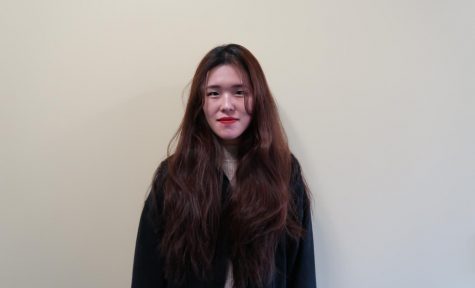Procedure set for transfers
Student Government Association
Several Pitt-Johnstown students, staff members and alumni toured the Pennsylvania State Capital building March 26 as part of the annual Pitt Day in Harrisburg event. Pictured: student government members stand on a balcony outside of Lt. Gov. John Fetterman’s office.
April 3, 2019
A protocol for students who wish to transfer out of the English as a Second Language course sequence is available on the humanities homepage, according to Humanities Division Chairman Michael Stoneham.
According to the protocol, the English as a Second Language course sequence is designed to help students whose first language is not English.
However, some international students have reflected that these courses are not as beneficial as officials believed them to be.
In a Feb. 20 Advocate article, some international students expressed their wish to take a regular composition class instead of staying on the English as a Second Language track.
However, these students said their request was denied by the instructor, who said that it is a university protocol that students need to stay on the same track they began on.
Stoneham arranged a meeting at 8:30 a.m. March 6 to discuss English as a Second Language courses with students who had taken them.
Junior Zhao Yan was one of the students who attended the meeting.
However, Zhao said that he didn’t get the chance to talk much before Stoneham said he had to leave.
“He just asked about my Test of English as a Foreign Language score and left.
“I went there because I wanted to suggest more course options. There’s only one choice now, at eight in the morning.
“For those who commute, they would have to get up at six or seven in the morning to come to class, especially when it’s snowing in the winter,” Zhao said.
After meeting with some of the students that attended, Stoneham designed an improved written protocol for those who wish to transfer to a regular composition class.
According to the protocol, students have the ability to request to be transferred from a English as a Second Language composition or Public Speaking sequence and be placed in a standard English Composition sequence.
In order to be considered to be placed in a standard English Composition sequence, there are a few things students need to complete.
“Students will submit a request in writing (email) to their respective (English as a Second Language instructor) outlining the reasons that they believe it is in their best interest to transfer to a non-(English as a Second Language) course.
“The (English as a Second Language) coordinator will meet with the Humanities division chair to discuss the student’s performance in (English as Second Language) Writing Workshop, Speaking and Listening Workshop, or in (English as a Second Language) Composition 1 class.
“The Humanities division chair will meet with student regarding his or her request.
“If the Humanities division chair concludes that the student has consistently demonstrated a level of excellence in oral or written performance, he will coordinate an on-site written exam with the student.
“The student’s performance during this evaluation will be separately evaluated by both the division chair and the (English as a Second Language) coordinator.
“Based on their evaluation of this proctored exam and the student’s performance in his or her class, the Division Chair will determine whether it is in the student’s best interest to remain in the (English as a Second Language) course sequence or transition—at the conclusion of the student’s current class—to a non-(English as a Second Language) course.
“Students recommended by the division chair for standard Public Speaking or Composition classes must pass the (English as a Second Language) course in which they are enrolled in order to enroll in a standard Public Speaking or Composition class,” according to the protocol.
Stoneham said that the multiple evaluations are to ensure the student’s English level is up to beat.
“Written or oral exams in proctored environments help educators evaluate students’ knowledge, skills and abilities.
“They are a good way to ascertain a student’s ability to perform at a certain level of proficiency under pressure and a consistent record of performance demonstrating a certain level of proficiency under pressure affirms the judgment of educators,” he said.
Some students suggested that they choose their courses instead of being placed in an English as a Second Language course, but Stoneham said that these courses are designed to ensure they succeed.
“(Pitt-Johnstown) is committed to creating the conditions in which students have the opportunity to succeed in their courses and programs of study,” Stoneham said.
“(English as a Second Language) courses for students who are not native English speakers go a long way to creating those conditions.
“Likewise, the First-Year Success Program, which is required for students admitted on a provisional basis, helps create the conditions in which first-year students whose high school academic record indicates that some additional focused academic support will enable them to flourish academically.
“Ignoring the students’ unique situation places them at a disadvantage—not something we embrace,” Stoneham said.
“Hence, we have embraced our (English as a Second Language) program for those who demonstrate a need during orientation.
“We want all students to succeed.”


